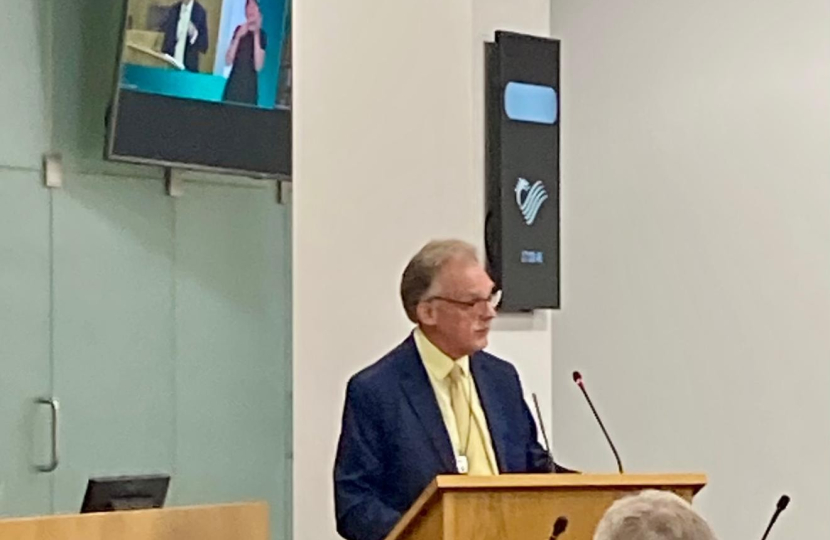
Following what he describes as “a long and undulating path’, North Wales MS Mark Isherwood has today introduced his Member Proposed Bill – The British Sign Language (BSL) (Wales) Bill”.
Speaking in the Senedd Chamber this afternoon, Mr Isherwood stressed that if his Bill is passed, it will be the most progressive BSL law in the UK.
He said:
“In June last year, the Senedd voted to allow me to introduce this Bill, and today, I am honoured to formally introduce a BSL (Wales) Bill.
“BSL plays a crucial role in enabling communication and promoting inclusivity in everyday life.
“For many Deaf individuals, BSL is their primary language - essential for expressing themselves, engaging with others, and accessing services that support them.
“It also serves as a bridge between Deaf and hearing people, breaking down barriers and building understanding across communities.
“Yet, too often, Deaf people are unable to access vital public services because they cannot communicate in their first language.
“This denies them their rights, and places them at a significant disadvantage - whether in healthcare, education, employment, transport, or otherwise.
“The Bill aims to address this by introducing a legal requirement to promote and facilitate the use of BSL in Wales.
“It will ensure that policymakers and service providers consider both the language needs of Deaf BSL signers and the barriers they face when designing and delivering services.”
He added:
“Without a standalone BSL Bill, Wales risks falling behind the rest of the UK.
“Scotland passed its BSL Act in 2015, the UK followed in 2022, and Northern Ireland is progressing its own Bill.
“If we don’t act now, Wales will be the only UK nation without this legislation.”
Mr Isherwood stressed that this is a Language Bill, recognising that BSL is a language in its own right, not a communication support need, and that the Bill goes beyond addressing discrimination, and places duties on Government and Public Bodies to actively promote and facilitate BSL, which he said is “a significant step forward for a cultural and linguistic group who currently face barriers accessing services in their first language”.
He said:
“Enshrining the Bill’s provisions in law also ensures that future Governments are also bound by them.
“The consistent message from consultation is clear: Deaf BSL signers in Wales cannot access services in their first language.
“This is unacceptable. As one individual undergoing major surgery shared, ‘throughout the whole time I did not understand anything’.
“The Welsh Government recognised BSL as a language over 20 years ago.
“This Bill builds on that by ensuring that Public Bodies actively consider the needs of Deaf BSL signers when designing and delivering services.
“The status quo is no longer viable. Only 18% of deaf people agreed that their information and communication needs are met more often now than before the All Wales Standards for Accessible Communication and Information were introduced in 2013.
“The need for greater awareness and provision of BSL is therefore justified.
“This Bill not only ensures that the legislative framework for BSL in Wales keeps pace with developments elsewhere in the UK, it also goes further. For example, the Bill includes the statutory appointment of a BSL Adviser - something not found in England or Scotland.
“This Adviser will be fluent in BSL and bring lived experience to the role. While the Scottish and UK Parliaments have appointed advisory panels, this Bill places a statutory duty on Welsh Ministers to appoint an assisting panel. If passed, this will be the most progressive BSL law in the UK.”
He added:
“If this Bill becomes law, we will look to those who are returned after the next election to ensure that the use of BSL in Wales is promoted and facilitated, and that BSL becomes a greater part of everyday life across Wales as its use grows.”
